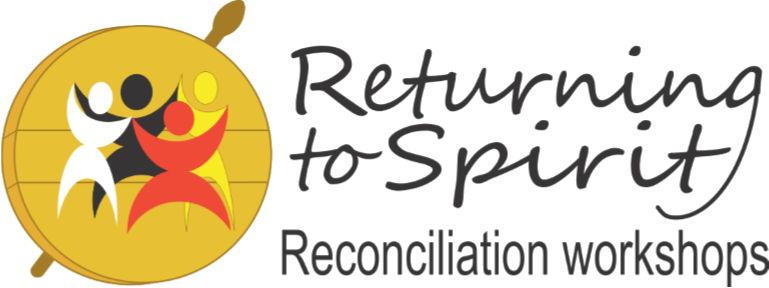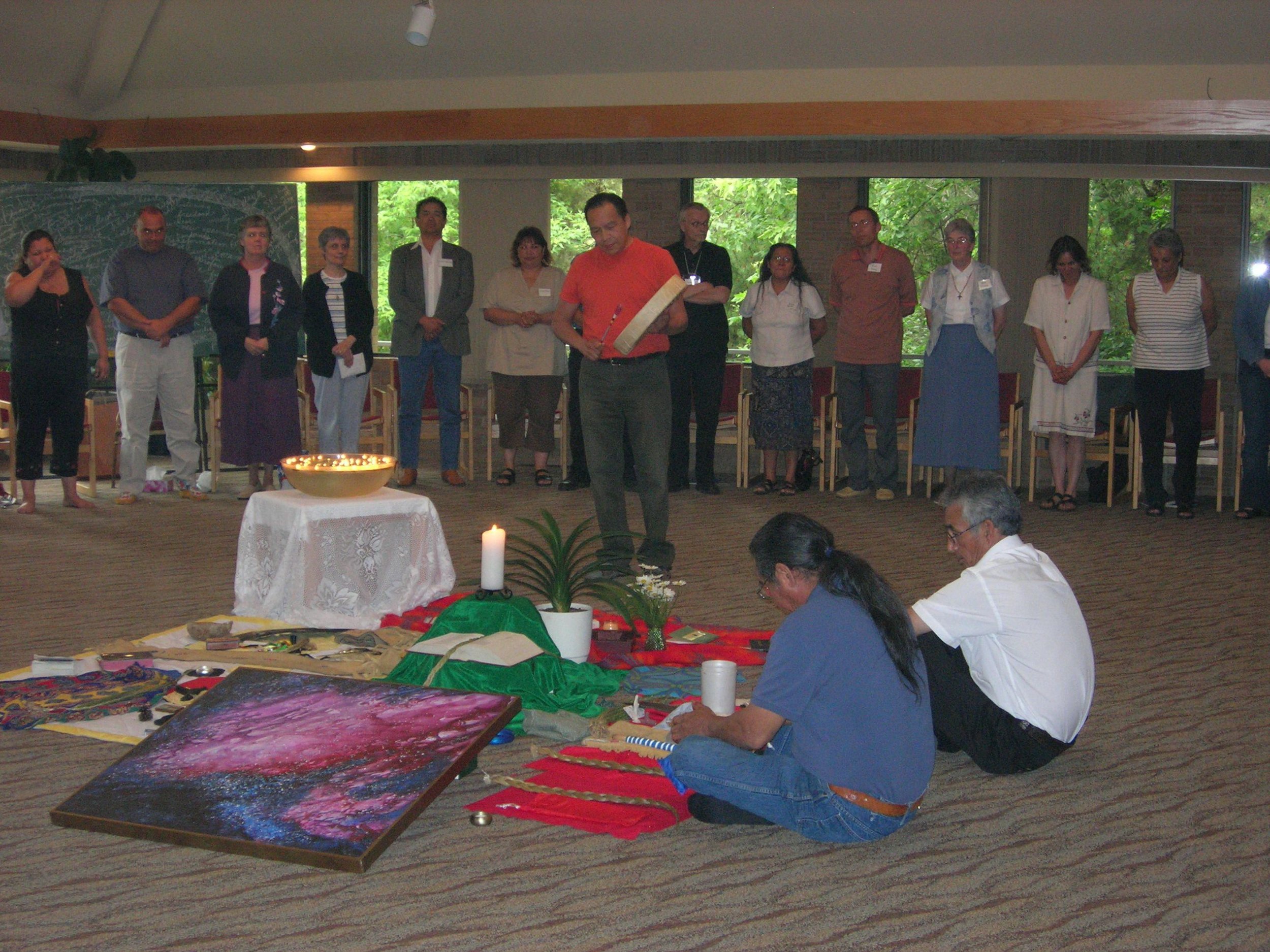Are we there yet?
Reconciliation.
Are we there yet? Shouldn’t we be there already? How many more steps do we need to take? Is it miles and miles ahead? Years away, maybe even generations? What will it be like when we get there?
We often hear of the “journey of reconciliation”. That we’re on the “path to reconciliation”. For Returning to Spirit, we’ve been traveling along this path for over 20 years.
Long before the Truth and Reconciliation commission launched. Before Stephen Harper expressed a statement of apology to residential school survivors. Even before Assembly of First Nations National Chief Phil Fontaine announced a class action lawsuit against the Government of Canada over the legacy of the residential schools. Returning to Spirit was delivering reconciliation workshops in Canada.
When we began…
At that time, for most Canadians, the issue was between two parties. On one side, was the church.
“When I started in 2004, the members (individuals & congregation) of the “Church” side were very much hurting as the litigations were in full swing. The need was at the gut level and not just at the head level. The first workshops started to bring hope and peace for the participants.”
RTS Workshop - 2006 - Saskatoon, SK
On the other, Indigenous people in Canada.
“When I started in 2006 Reconciliation was a pipe dream, many people did not believe that it was possible. Back then the majority of participants were directly affected by IRS, students and some administrators, Sisters, Priests directly involved. Today it is the intergenerational hurts that we are handling on both sides. ”
As we continued on this journey, we traveled to communities large and small, urban and rural all across Canada. The conversations shifted and there was healing to be done between Indigenous and non-Indigenous people. That it was no longer just the Church as the main focus but there was a great need to involve all Canadians.
““When I first participated in an RTS workshop more than a decade ago, the word reconciliation seemed very abstract. It wasn’t a common part of the collective conversation, and it wasn’t clear to non-Indigenous people what our role was in it or for many, that they even had a role in it. ”
RTS Workshop - 2013 - Winnipeg, MB
Through the years, we continued to deliver workshops, providing opportunities for Indigenous and non-Indigenous people to come together for face to face, one on one conversations in a space of honesty and mutuality. We have witnessed powerful shifts in conversations, deep healing and understanding and lasting relationships being formed between participants.
215
Signs at the National Day for Truth and Reconciliation - 2022 - Winnipeg, MB
In May of 2021, the entire world became aware of the 215. The profound pain of the news of 215 unmarked graves found at the former Kamloops Indian Residential School was felt across the board. Indigenous, non-Indigenous. It was a deeply painful truth of our history, front and centre.
For many non-Indigenous people, this was no longer an Indigenous issue, this was a human issue and they needed to be part of the healing.
“One significant factor that I have seen shift intentionality and openness with participating in our workshop is how the news stories of children’s graves have shifted openness by non-Indigneous people. At one time, it was more of a struggle to bring in non-Indigenous people into our circles. Whereas, they are registering in greater numbers now. Once in the workshop, the tone of their journey through it sounds similar in both rooms - human.”
As we continue our work, we do focus on Indigenous and non-Indigenous groups however, what we see time and time again on this path is that we are all just human. We all struggle to reconcile, with ourselves, with our past, with our children, friends, partners. We struggle to be at peace. Reconciliation is ultimately about each and everyone one of us.
Where does the path lead?
What makes reconciliation challenging is that it’s never a linear journey or a smooth ride. Since the Kamloops discoveries, we’ve seen many more communities going through the same process. Painful each and every time. We’ve seen the word reconciliation being used in more and more conversations, prioritized in schools and businesses. We’ve seen calls to Search the Landfill being dismissed and denied. We’ve seen a sea of orange shirts marching together across cities and towns all across Canada, acknowledging the National Day for Truth and Reconciliation.
Dianne Little, Janelle Delorme, Sr. Norma McDonald & Jason Cegayle on the National Day for Truth and Reconciliation 2022
Reconciliation will never be a destination. It’s not just up ahead, or around the corner. When we look and think this thing or that thing will be the key to reconciliation and it disappoints us, it wasn’t just a mirage. It’s always in the here and now.
“There is an expectation that reconciliation will resolve everything […] it is personal and constantly in motion. Reconciliation is a choice that you have to make continually.”
For our the Returning to Spirit Team, we continue on this path both personally and professionally every day.
“I would call myself a collector of reconciliation moments, I think that is the journey. Not ever fully reconciling but collecting more moments of peace and reconciliaton with others than experiences of no reconciliaiton. Not for anyone but myself because I deserve peace and happiness and full control of my self expression and gifts.”
Francois Paradis and Lisa Raven in Rome, 2022
“Reconciliation is a running thread in my life and ministry. The Oblates of Mary Immaculate were part of the problem; as an Oblate, I am to be part of the solution.”
Moving Forward
What the next 20 years will look like on this journey, no one knows. What we do know for sure is that there will be bumps in the road, times when we feel stuck and we struggle to move forward. Times where there is anger, grief, frustration. There will also be times, hopefully like today, the National Day for Truth and Reconciliation where we gather, in a good way, in an honest way and we walk this path together.
The National Day for Truth and Reconciliation - 2022 - Winnipeg, MB






